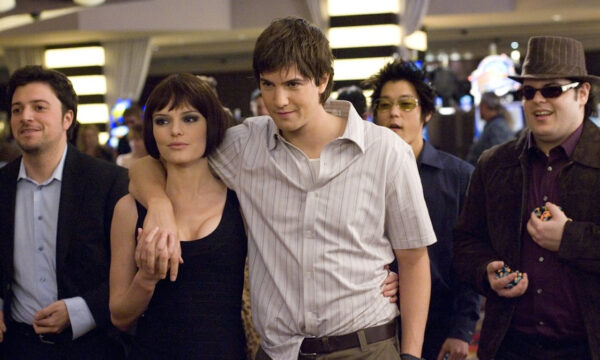Putting snooker back on track

Each snooker fan knows that this sport’s period of glory was during the 1980s. A decade later names like Stephen Hendry and Ronnie O’Sullivan dominated the green baize, yet snooker’s popularity dropped dramatically.
Nowadays, critics have the tendency to point their finger at the lack of characters within the game, but on a closer look they are proved wrong. Since 2010, the one we all know as “The People’s promoter”, Barry Hearn, took over World Snooker Ltd. and started what he called “the snooker revolution”. Two years later, the results are showing: increasing the number of tournaments, the chances to be promoted as a player and snooker as a whole, are being taken to an entirely new level and this is far from being the end of snooker’s revival.
When Barry Hearn took over the commercial arm of the WPBSA (World Professional Billiards and Snooker Association) back in 2010, the game of snooker was in dark woods. Just a month earlier the John Higgins match-fixing bomb exploded, right in the middle of the Crucible cue action and the sport’s popularity as well as its credibility were dramatically affected. Just in one day the sport considered by many to be a gentlemen’s game was turned into yet another disappointment.
With a seriously damaged image and the then World Champion banned from playing snooker, with less tournaments than ever and a sport that was looking nothing like the flourishing one from twenty years ago, things had to change and they had to change quickly.
All that was needed was the players’ vote in June 2010 and Barry Hearn, the man who has had a lot of say in sports like boxing and darts, was named Chairman of World Snooker Ltd.
Right from the beginning he made his intentions clear and along with the WPBSA’s Disciplinary Committee he managed to launch the Integrity Unit that was “designed to eliminate all forms of corruption from snooker”.
The John Higgins’ case almost caused irremediable damage to snooker’s image as a clean sport and drastic measures had to be taken. Still, the Unit was formed to prevent these horrible events from happening again, but it wasn’t able to erase the harm of the previous ones.
The battle was tough and with Higgins’ six-month ban from snooker, the sport needed to start its recovery journey in a whole new direction.
And so the PTC series was born. A series of 12 ranking events, half of them being staged in the UK and half on the continent, to try and recapture that almost forgotten fascination for the sport played with pretty colourful balls.
The events were not open just for professional players, but also for the amateur ones, two days of qualifying rounds giving them the chance to play next to the biggest names in the business. The events involved a lot of travelling, particularly the ones held outside the UK’s borders, but the players were happy. Their job seemed like a stable one.
Then it came to the revival of the old tournaments like the World Open, the introduction of brand new ones with a slightly different format like the Shoot-Out, the new signed contract with the BBC for three years to come, but also the maintaining the Crucible Theatre from Sheffield as the home for the World Championship.
Still, probably one of the biggest changes that Hearn’s reign has brought has been the new ranking system, or better to say, the two-year rolling list with three cut-off points during the season. This has meant that players were no longer guaranteed a place in the Top 16 if they didn’t start winning matches.
For the first time in years, players like Stephen Hendry started worrying, while those for whom a place in the Top 16 seemed like a distant dream, started hoping.
And for many, the hopes turned into reality, the likes of Mark King and Peter Ebdon, being the first to benefit from Hearn’s idea and grabbing a place in the Top 16, although they didn’t succeed to retain it for long.
Due to the PTC series of events, a new star emerged, Judd Trump appearing for the first time in the spot-light after winning the EPTC Event One, also known as the Paul Hunter Classic in Germany. A few months later, he was practically rocking around the snooker tables installed in Beijing and won the China Open by beating a stunned Mark Selby 10-8.
He carried on during the World Championship and saw off the defending champion of that time, Neil Robertson, in the first round and cruised undisturbed into the final. Here, a pretty shaken up but eager-to-win-back-his-status John Higgins was waiting.
The fight was a tight one, but after the six-month ban, Higgins returned with an enormous power and motivation (he won no less than five tournaments during the 2010/2011 season) which proved to be enough to win him a forth world title.
The 2011/12 season brought many more tournaments, like the Australian Open, The Brazil Masters, the World Cup or the Haikou World Open and with them an avalanche of players that broke the ice and conquered their first ranking titles; Stuart Bingham and Mark Allen being amongst them.
But not everything proved to be okay and players started speaking their mind about a too busy and compact schedule, about not having time to breath between tournaments or spend time with their family.
However Hearn knows that you can revolutionise a sport without sacrifices and so this season has brought the cue action to the Far East, with no less than eight snooker events taking place in China.
And although the current season’s debut wasn’t a perfect one, Ronnie O’Sullivan deciding to take a six-month break from snooker, and Joe Jogia being banned from any involvement in the game of snooker or billiards up until the 2014 World Championship, snooker is still gaining popularity.
Although the majority of the newspapers focus their attention on writing about snooker only when Ronnie O’Sullivan exceeds the speed limit, or when Mark Allen points his finger and says something nasty, the snooker blogosphere is more active than ever and covers the ups and downs of this cue sport.
On social networks, on the streets of Sheffield, when snooker’s back in the city that’s madly in love with it, in China or in Germany, snooker is beginning to show off its shiny green baize that has raised so many champions over the years and is certain to create a whole lot more in the ones to come.
Ramona Dragomir, snooker correspondent






















Facebook
Twitter
Instagram
YouTube
RSS